Despite the Federal Executive Council’s (FEC) decision to fully implement the Steve Oronsaye panel report to reduce the cost of governance, restructuring, and rationalisation of federal agencies, parastatals, and commissions, the National Assembly is unmoved.
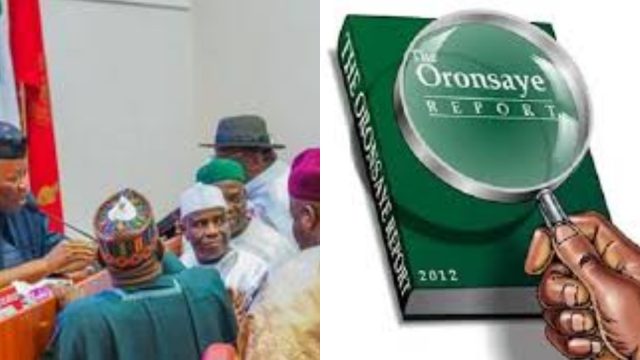
Contrary to the Steve Oronsaye report, which suggests eliminating or merging several ministries, departments, and agencies to lower government expenses, it is no longer news that the National Assembly barely goes any week without considering establishment bills that question the relationship between the executive and the legislature.
This committee set up by the Federal Government to review the parastatals, agencies and commissions created since 2012 submitted a draft report in August.
Research by OrderPaper ParliaMetrics shows that according to the National Commission for College of Education (NCCE), the total number of Government Colleges of Education is 97 while the total number of Government Universities according to the National University Commission (NUC) is 116.
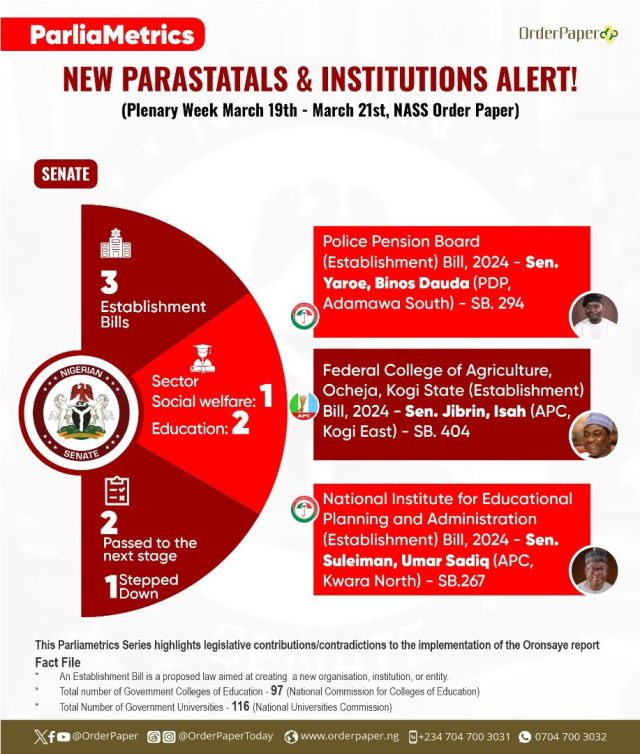
Following the plenary week of March 19th – March 21st, 3 establishment bills appeared on the Senate order paper, of which two were passed to the next stage and one, stepped down to be considered on another legislative day.
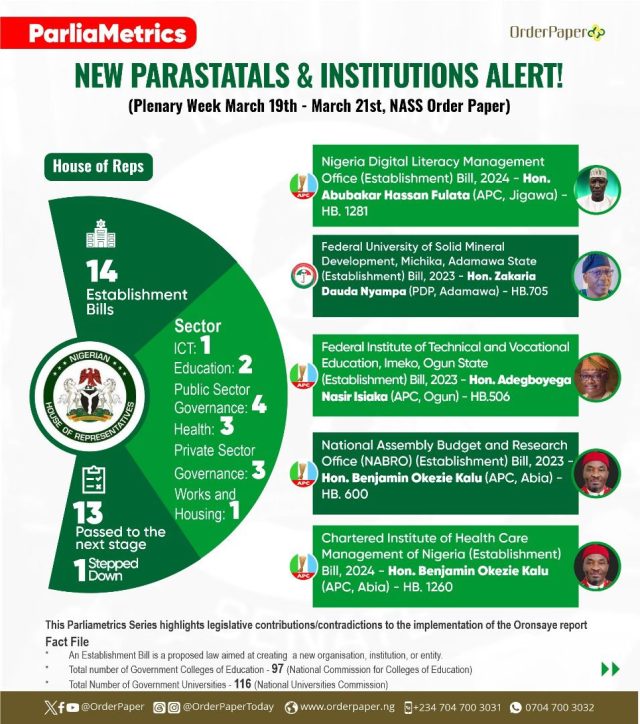
Also, in the House of Representatives, 14 establishment bills appeared on the order paper, of which 13 were passed to the next stage and one stepped down to be considered on another legislative day.
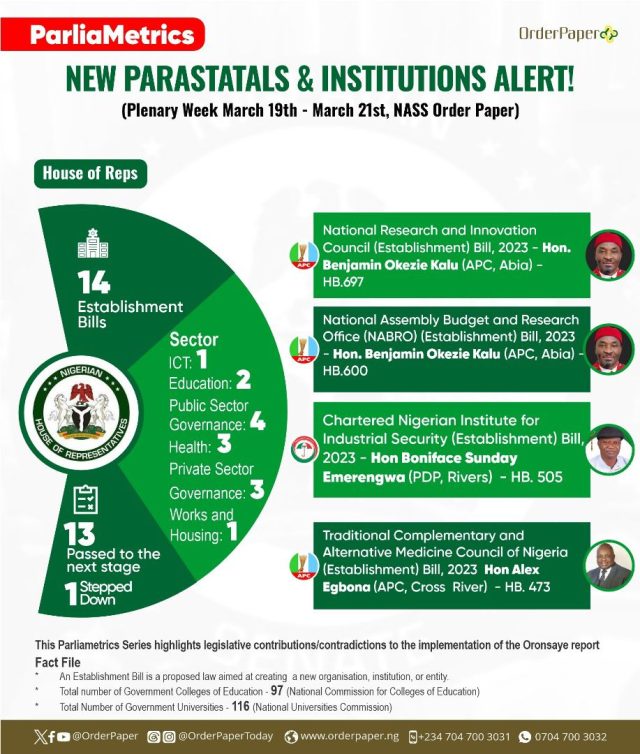
This clearly shows how the 10th Assembly, despite the recommendations in Oronsaye’s report, is bent on creating more agencies.
READ ALSO: Senate damns Oronsaye Report, set to establish University of Education
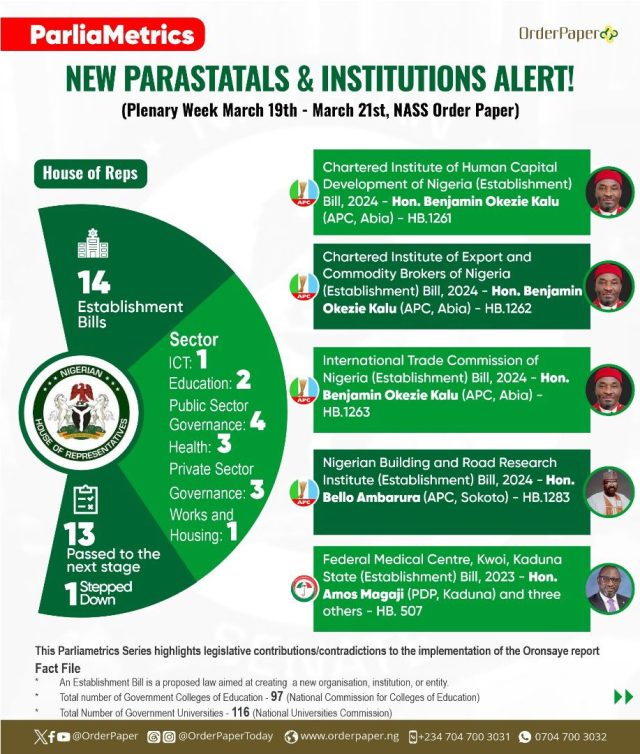
What is an Establishment Bill?
As the name implies, an establishment bill is a bill that aims to set up or create an institution, agency or organisation, which will certainly require huge funding.
Key Insights to the Oronsaye Report
- The Presidential Committee on the Rationalisation and Restructuring of Federal Government Parastatals, Commissions, and Agencies was established in 2012 by former President Goodluck Jonathan, who appointed Stephen Oronsaye as the committee’s chairman.
- Concerns regarding inefficiencies, redundancies, and excessive bureaucracy within the federal civil service were the reason behind the Nigerian government’s commissioning of the investigation.
- It suggested cutting the number of statutory agencies from 263 to 161, eliminating 38, merging 52, and reverting 14 to ministry departments.
- The report, If implemented, will render more than 100 heads of agencies and parastatals jobless.
- Following the committee’s report, the majority of the suggestions were rejected and those that were accepted were not implemented.



